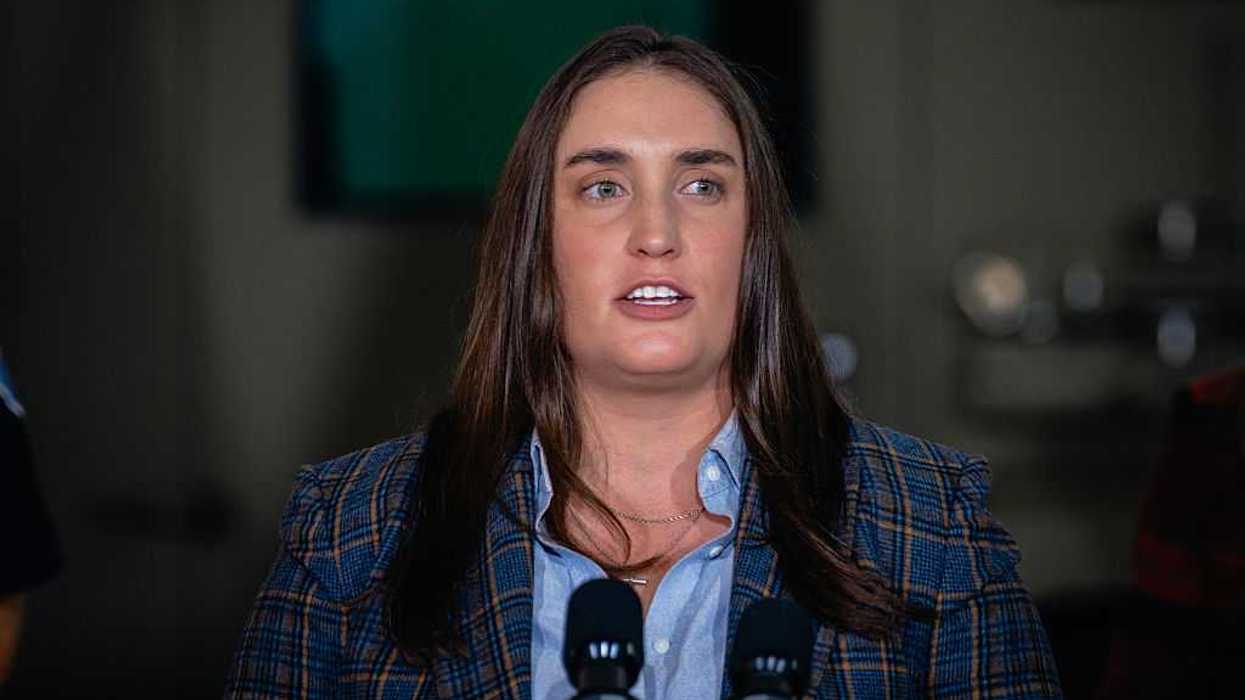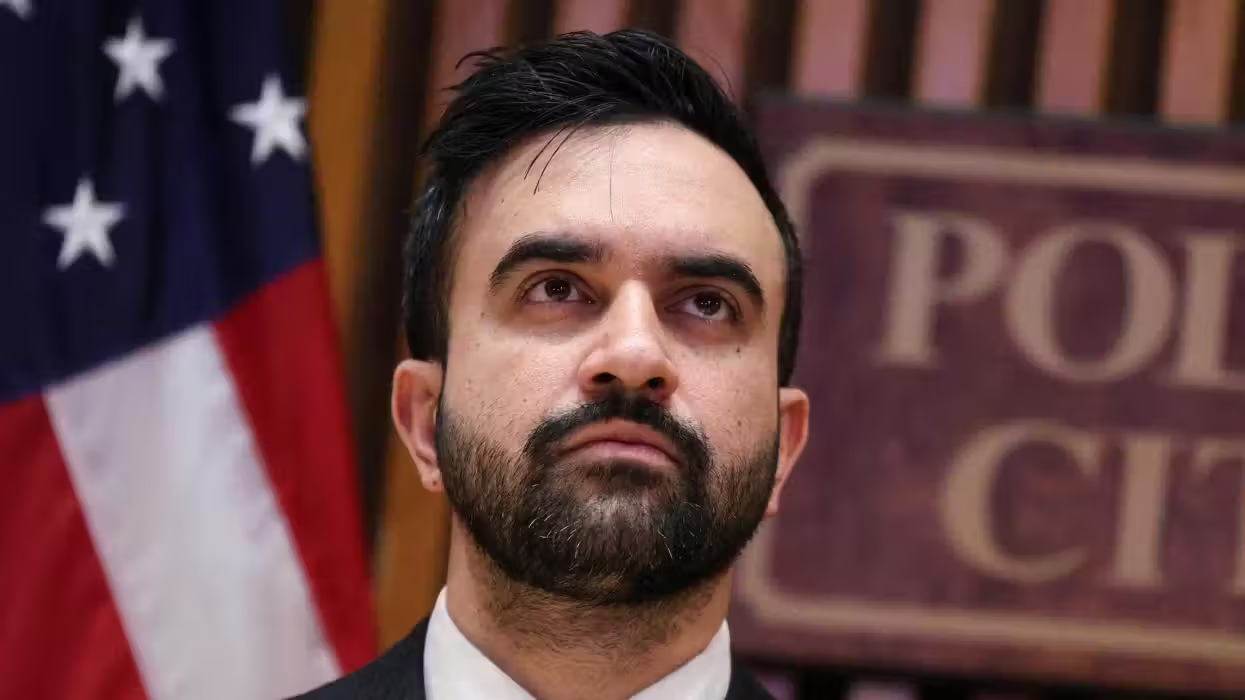
© 2026 Blaze Media LLC. All rights reserved.
"...you find that the only thing you can do with your human capitol is work at Starbucks, then you think 'maybe I was fed a lie.'"
"Mom, Dad, I'm dropping out of college." These words are probably a parental nightmare. But for Michael Ellsberg the nightmare would sound like this: "Mom, Dad, I'm going to graduate school."
 You see, Ellsberg, author of the recently published "The Education of Millionaires: It’s Not What You Think and It’s Not Too Late," believes that today's college graduates, current undergrads and high school students don't realize the potential they have to find or create a job for themselves -- sans degree. Ellsberg says the "system" has taught young people to think a college degree leads to success and more wealth.
You see, Ellsberg, author of the recently published "The Education of Millionaires: It’s Not What You Think and It’s Not Too Late," believes that today's college graduates, current undergrads and high school students don't realize the potential they have to find or create a job for themselves -- sans degree. Ellsberg says the "system" has taught young people to think a college degree leads to success and more wealth.
But in today's economy, the opposite can be true. According the U.S. Bureau of Labor Statistics, unemployment for college graduates between age 20 and 24 was at 12 percent in June. And according to Mark Kantrowitz (via the Wall Street Journal), publisher of student-aid websites Fastweb.com and FinAid.org, the average debt for an new B.A. or B.S. graduate this year is $22,900. USA Today also reported earlier this month that student debt will eclipse $1 trillion by the end of this year, exceeding the nation's credit card debt.
Ellsberg says that college graduates are now getting angry when they leave school with thousands of dollars in debt and the job they get is pouring coffee. Some in the Occupy Wall Street movement, even if you disagree with it, exhibit this rage. Take a look at some of their demographics: 64 percent are under the age of 34, 92 percent have some sort of college education and about 50 percent are employed full-time, according to a survey of 1,619 people who visited the Occupy Wall Street website.
"If you have invested 16 years in your life and you find that the only thing you can do with your human capitol is work at Starbucks then you think 'maybe I was fed a lie.'"
As for the Occupiers, to whom Ellsberg plans to donate a few copies of his book, "there is a huge mishmash of ideas being circulated down there, many of which I don't agree with," Ellsberg said. "But the underlying thing that's going on is a sense of rage around the system. It's not working for young people."
ABC News recorded these comments from recent college graduates last year:
"I just graduated from the University of Texas at Austin with a degree in corporate communications and concentrations in business and Chinese," wrote one. "I thought I would be set once I graduated. Of course, I was wrong. In order to pay the bills, am doing random odd jobs, such as cleaning and helping people pack."Another told us: "I'm 22 years old with a degree in management from Hofstra University. I've been job hunting since May 2009. I've been making some money babysitting, but I don't want to make a career out of babysitting for the rest of my life."
Or this: "I graduated from Northern Michigan University in August '08 with a BS in mathematics. I have applied for nearly 300 jobs and only heard back from a small handful. Got a personal trainer's certificate..."
The vast majority of students in college today, according to Ellsberg, are being trained for middle management jobs that just don't exist anymore.
"In the 1950s, when the current educational system came into its current form, there was a shortage of middle managers," Ellsberg said. "At that time, we needed ranks and ranks of organization men and this is what parents wanted their kids to become.
"That was great in the 1950s , but everything is turned on its head now. Corporations are downsizing, replacing middle managers with software or an organizational man in India. No longer is being a middle manager a route to job security."
In his New York Times op-ed over the weekend, Ellsberg, wrote that the current educational system doesn't teach students about creating jobs or starting businesses, and we therefore have a shortage in our country:
If start-up activity is the true engine of job creation in America, one thing is clear: our current educational system is acting as the brakes. Simply put, from kindergarten through undergraduate and grad school, you learn very few skills or attitudes that would ever help you start a business. Skills like sales, networking, creativity and comfort with failure.No business in America — and therefore no job creation — happens without someone buying something. But most students learn nothing about sales in college; they are more likely to take a course on why sales (and capitalism) are evil.
Moreover, very few start-ups get off the ground without a wide, vibrant network of advisers and mentors, potential customers and clients, quality vendors and valuable talent to employ. You don’t learn how to network crouched over a desk studying for multiple-choice exams. You learn it outside the classroom, talking to fellow human beings face-to-face.
Ellsberg noted in his interview with The Blaze that his wife, who is a college dropout that started her own company, employs four people. Although this may not seem like a lot of employees, consider how many people the average college graduate employs themselves. Few probably truly employ anyone unless they are a business owner.
Ellsberg's perspective is not without opposition. Vartan Gregorian, president of the Carnegie Corporation, wrote in Time that it's undeniable people with a college degrees are more likely to have a job and earn more than those without. The Huffington Post confirmed this in June with the Bureau of Labor Statistics as finding college graduates were still more employed than those without a degree.
Gregorian also writes that there is a purpose to education beyond financial gain:
[...] the purpose of education, whatever its cost or its source, is not simply to enable one to earn a living but to prepare one for living over the course of an entire lifetime with all the ups and downs that come our way. This is particularly true of the liberal arts which, I believe, are the key to endowing students with the perspective for reflection upon the nature and texture of their own lives.
While Ellsberg notes that he doesn't believe every college dropout will become an entrepreneurial millionaire or that people striving to become doctors and lawyers should drop out of college -- obviously they shouldn't -- at least in himself, he found that he learned many things on his own.
"I couldn't make the transition. What I valued in college, I couldn't find jobs in."
So, does Ellsberg use his degree in international relations? He says the fact that his wife is Australian is about as close as it gets.
Want to leave a tip?
We answer to you. Help keep our content free of advertisers and big tech censorship by leaving a tip today.
Want to join the conversation?
Already a subscriber?
more stories
Sign up for the Blaze newsletter
By signing up, you agree to our Privacy Policy and Terms of Use, and agree to receive content that may sometimes include advertisements. You may opt out at any time.
Related Content
© 2026 Blaze Media LLC. All rights reserved.
Get the stories that matter most delivered directly to your inbox.
By signing up, you agree to our Privacy Policy and Terms of Use, and agree to receive content that may sometimes include advertisements. You may opt out at any time.






